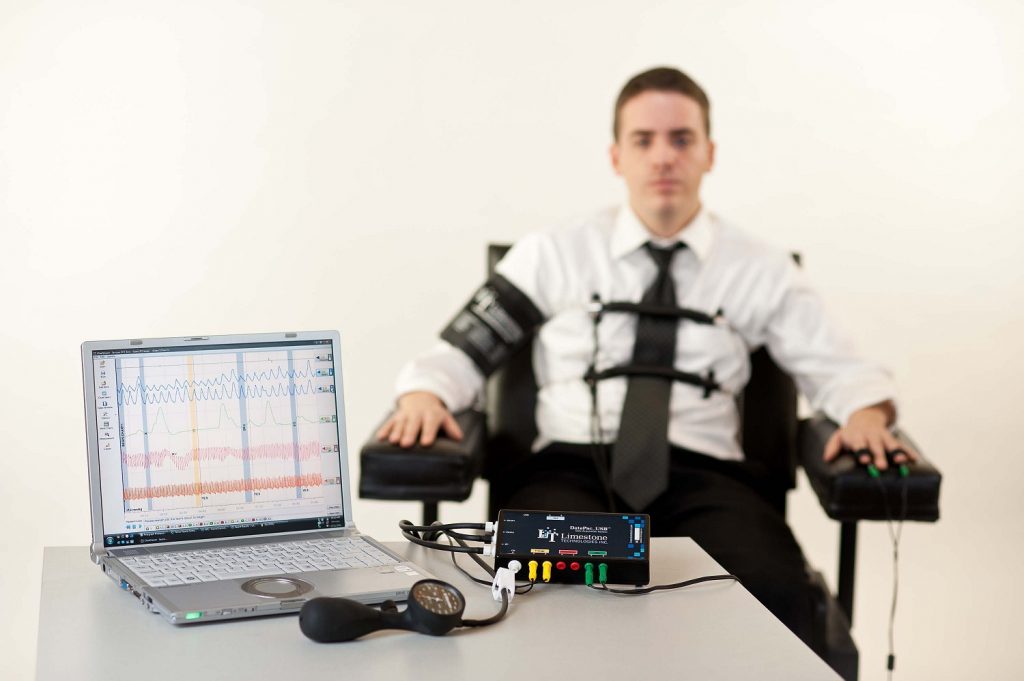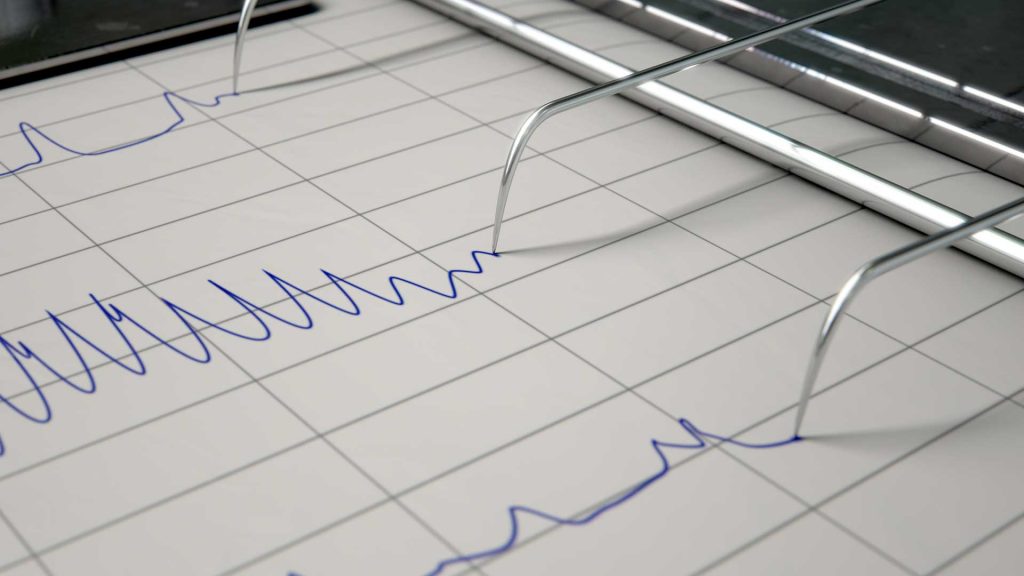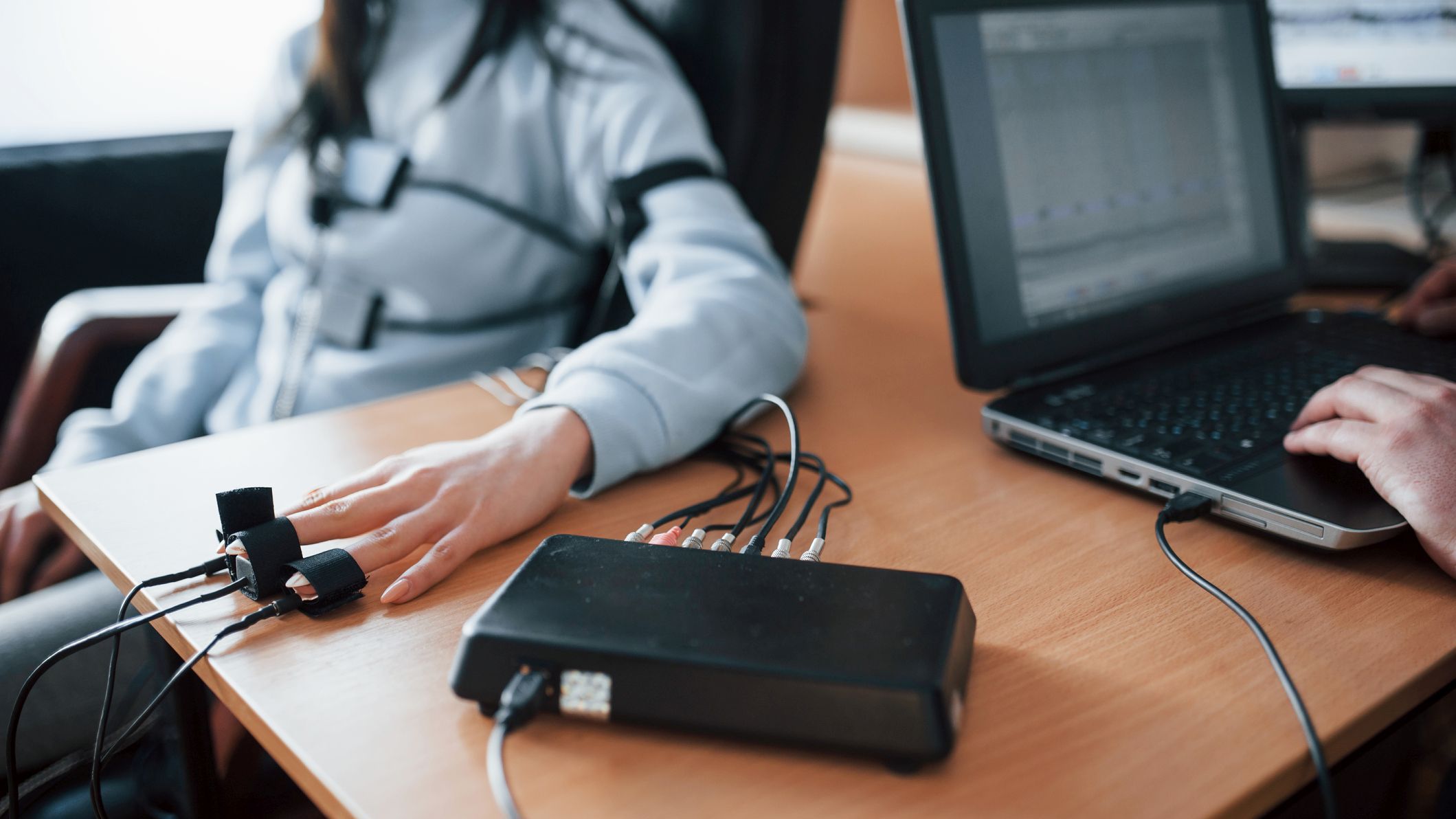As someone who binge watches old daytime TV on YouTube, I’m very familiar with the fact that programs like Maury, The Jeremy Kyle Show, Couples Court with the Cutlers and their ilk hook viewers through lie detector revelations. And so, I’ve always been curious as to how effective lie detector tests really are, and how admissible would they be in a real court of law. This article is the first in a potential series where I discuss my findings.
What is a Polygraph Test?
In short, polygraph tests record several different bodily responses which can then be used to determine whether someone is telling the truth. They usually measure things like blood pressure, changes in a person’s breathing, and sweating on the palms.
Polygraph tests do not measure deception or lying directly, but rather possible signs that a person could be deceiving the interviewer. This information is then used in conjunction with everything else that is known about the person to form a clearer picture of whether or not they are being truthful.
How Are They Carried Out?
Polygraphs have been used around the world, in countries such as Japan, Russia and China, but the technology remains largely the same. There’s a fairly long pre-test interview that lasts for about an hour that focuses the individual on the questions they’re going to be asked and tries to remove any outside distractions. This is followed by a practice test, which usually involves a few straightforward questions. The aim is to relax the individual, so they are comfortable and able to understand how the process works.
The equipment is then attached, and it usually includes a blood pressure monitor, electrodes which are placed on the fingers or palm, and two tubes which are wrapped around the chest and stomach.
Interviewers ask a number of control questions during the test and then compare the responses to the key questions. It finishes with a post-test interview, where the person will be able to explain any responses they showed.

Is a Polygraph Test Admissible as Evidence?
Have you ever wondered why, in a system of justice that relies so heavily upon people telling the truth, every witness is not strapped to a lie detector? It is a logical question that leads to others about how interrogations and investigations are conducted when polygraphs are used. So, is a polygraph test admissible as evidence?
In virtually every jurisdiction, the answer is a resounding no. Though called lie detectors, the reality is that a polygraph machine does not have any capacity for detecting the truth or falsity of a statement. Rather, it measures a person’s biological processes to determine if they are experiencing a physiological event, such as an increase in blood pressure or heart rate. These conditions are considered to be indicators that someone may be lying, as the increased stress of telling a falsehood creates a subtle, but measurable change in one’s vital readings.
Unfortunately, dozens of other factors can also affect the readings detected by a polygraph machine. For instance, nervousness of any kind could read with the same increase in activity as a lie. This nervousness could simply be caused by being concerned about the test giving a false positive, creating a self-fulfilling prophecy. In fact, some polygraph administrators, particularly in law enforcement, are given training on how to induce a false positive response or to ask questions in a fashion that makes them difficult to answer with a yes or no. On the other hand, those taking the test have reported being able to evade the detection of a lie by using various techniques such as faking a cold, squeezing the muscles of one’s posterior, and so forth. These techniques would cause a reading on the polygraph that would show increased physiological activity even when the person is not lying, making it difficult to detect any variation when the person does tell a falsehood.
As a result, polygraphs have been successfully challenged on several occasions in various jurisdictions based on their scientific uncertainty. Because the results of a polygraph test can mean many things and are so unreliable in detecting actual lies, they do not rise to the level of reliability required for scientific evidence in a courtroom and polygraph test results are usually inadmissible as evidence.

Of course, as with most things in a courtroom, every rule has its exception. In the rare instance that both parties agree that the results of a polygraph exam should be admissible for some reason, the court could allow it as evidence. Polygraphs are also commonly used as part of the screening process for certain types of jobs, such as law enforcement and some high-level security positions. Nevertheless, for purposes of court procedures, absent a stipulation of the parties, the results of a lie detector test are likely never admissible. If you are involved in a case in which the results of a lie detector test are being used against you, you should immediately contact an attorney to assist you.
Have you ever taken a lie detector test? Share your experience in the comments below.

